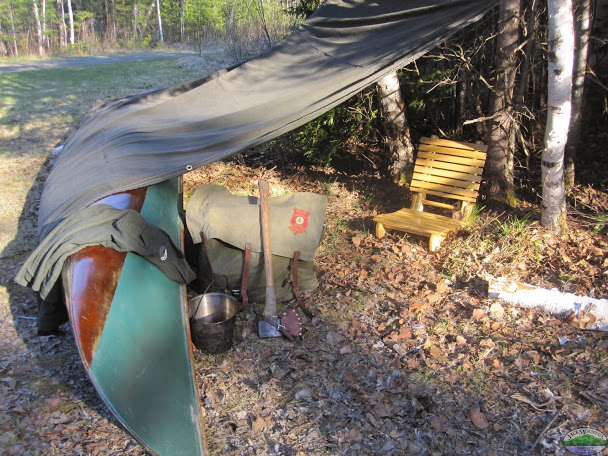“I’d rather have it and not need it than need it and not have it.”
I’ve heard this idea communicated in many ways over the years, am tired of hearing it, and am weary of it being used as an excuse to bring too much stuff on the trail. Countless times over my 17 year career as a professional guide, I’ve witnessed the almost universal human (or maybe North American?) condition of bringing too much stuff on trips into the field. Yes, you need to have the right stuff on an expedition, but too much is often worse than having not enough.
Granted, the colder or more adverse the weather, the more personal kit you need in the form of clothes, sleeping bag, etc., but it shouldn’t be used as an excuse to bring the kitchen sink along.
The past summer on our 4-week canoe trip (Wilderness Canoe Expedition Semester), we ran a challenging route beginning at Johnson Pond, across Allagash lake, down Allagash Stream, across Chamberlain and Telos Lakes, down Webster Stream, across Grand Lake Matagamon, and down the East Branch of the Penobscot. There were 10 carries, adding up to several miles of overland travel, as well as lots of technical whitewater. Such a physically arduous trip is a great teacher with regard to bringing only what you need. That being said, I brought my folding wood canoe chair (featured in the photo above) on the trip because I knew I’d enjoy it at the end of every day. I didn’t need it, but I also didn’t mind the extra weight because of how much comfort it would provide. Hard travel teaches the lesson of bringing only what you need, and weighing the extra work of bringing those things you want but don’t need.
But I find the inverse is also true when base camping. Some people who arrive for our 9-week semester course, although we’ve explained that living at the field school is about being comfortable not ultralight, pack as if they’re on a backpacking trip, then spend a lot of time talking about what they wish they had brought. This usually isn’t a problem, unless the things they wish they’d brought include a warmer sleeping bag or similar key piece of gear, but it is a distraction.
It’s a worthwhile experience to live outdoors in a base camp for a length of time where you can bring as much stuff as you like. It helps you learn the things that are useful and the things that are dead weight. It’s also useful to spend some time where you don’t have enough, and are forced to improvise and/or make do without. It teaches you that having less can be liberating, and that mother nature can provide. Knowing the difference and how to plan and prepare is key.
For a great read on this topic, check out my friend Nick Gallop’s post titled Get Organized On The Trail.
Base camp heavy and travel light!









Comments on this entry are closed.
Well said gives me pause to think about my two backpacks, and 20 packs worth of gear!! Lol
Got to come to terms that my home is base camp,and anywhere but there requires a good knife, a tarp and blanket, some cordage,and flint striker and severely positive outlook with the knowledge I possess!
Thanks Greg. And the most important on your list is a severely positive outlook!